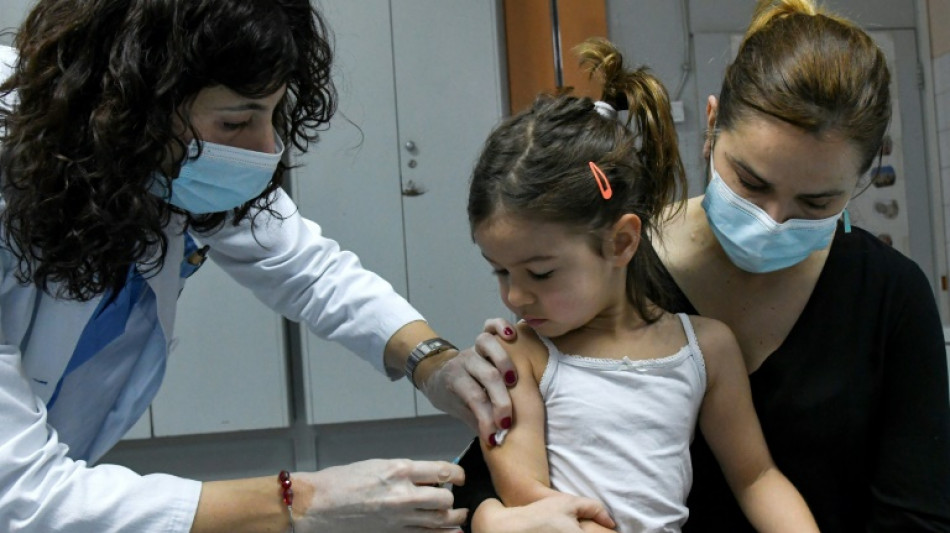
-
 G7 to launch 'alliance' countering China's critical mineral dominance
G7 to launch 'alliance' countering China's critical mineral dominance
-
Wallaby boss Schmidt wary of Ford's 'triple threat'

-
 Swedish hate-crime trial shines light on far-right 'fitness clubs'
Swedish hate-crime trial shines light on far-right 'fitness clubs'
-
Trump call for nuclear tests sows confusion
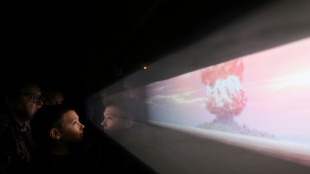
-
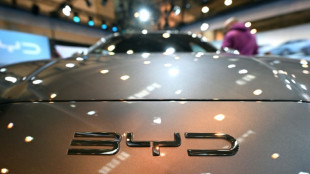 Chinese EV giant BYD says Q3 profit down 33%
Chinese EV giant BYD says Q3 profit down 33%
-
ECB holds rates steady with eurozone more resilient
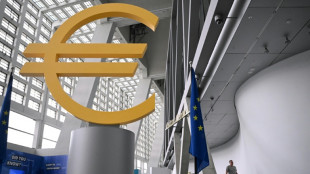
-
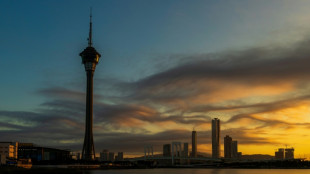 Independent Macau media outlet says it will close by December
Independent Macau media outlet says it will close by December
-
Shares in Jeep-maker Stellantis slump despite rising sales

-
 Shelton beats Rublev to reach Paris Masters last eight
Shelton beats Rublev to reach Paris Masters last eight
-
Trump stirs tensions with surprise order to test nuclear weapons
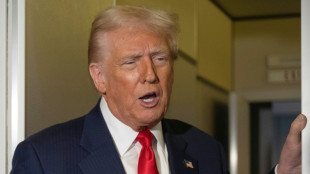
-
 S.Africa court rules ANC leader Luthuli was killed in apartheid 'assault'
S.Africa court rules ANC leader Luthuli was killed in apartheid 'assault'
-
Stocks slide as investors digest Trump-Xi talks, earnings

-
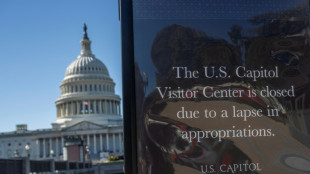 No GDP data released as US shutdown bites
No GDP data released as US shutdown bites
-
PSG's injured Doue to miss Bayern match, out for several weeks
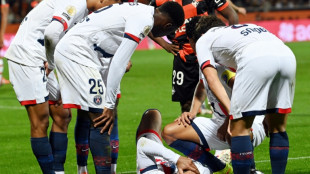
-
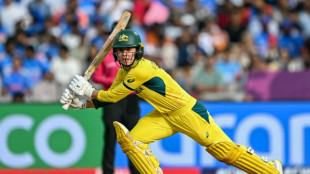 Litchfield ton guides Australia to 338 in World Cup semis
Litchfield ton guides Australia to 338 in World Cup semis
-
S.Africa court rules ANC leader Luthuli killed in apartheid 'assault'

-
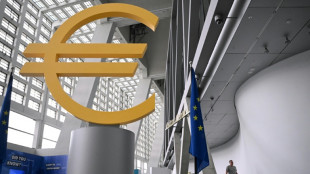 With inflation under control, ECB holds rates steady again
With inflation under control, ECB holds rates steady again
-
Nigerian designer embraces 'clashes' and 'chaos' at Lagos Fashion Week

-
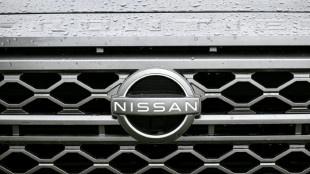 Nissan says expects $1.8 bn operational loss in 2025-26
Nissan says expects $1.8 bn operational loss in 2025-26
-
Italy court stalls Sicily bridge, triggers PM fury
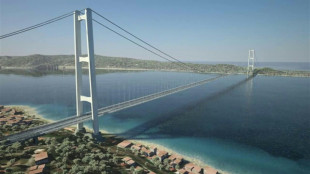
-
 Marseille midfielder Nadir stable after on-pitch collapse
Marseille midfielder Nadir stable after on-pitch collapse
-
Saudis turned down Messi stint ahead of 2026 World Cup, says official

-
 Novo Nordisk launches bidding war with Pfizer for obesity drugmaker Metsera
Novo Nordisk launches bidding war with Pfizer for obesity drugmaker Metsera
-
Universal says struck first licensing deal for AI music
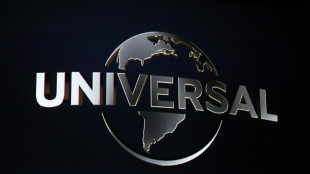
-
 France arrests five new suspects over Louvre heist: prosecutor
France arrests five new suspects over Louvre heist: prosecutor
-
Record Vietnam floods kill 10, turn streets into canals
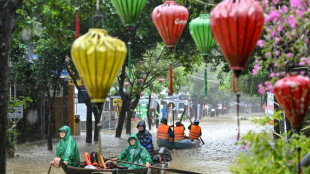
-
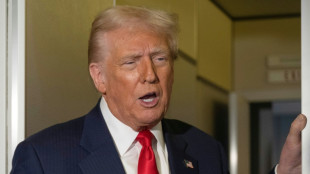 Trump orders US to start nuclear weapons testing
Trump orders US to start nuclear weapons testing
-
'Significant' Xi, Trump talks win cautious optimism in China

-
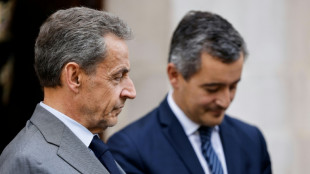 French justice minister visits jailed former president Sarkozy
French justice minister visits jailed former president Sarkozy
-
Eurozone growth beats expectations in third quarter

-
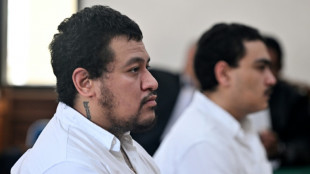 Bali trial begins for 3 accused of Australian's murder
Bali trial begins for 3 accused of Australian's murder
-
Dutch election a photo finish between far-right, centrists

-
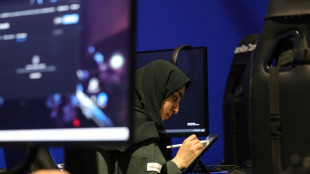 IOC removes Saudi Arabia as host of inaugural Esports Olympics
IOC removes Saudi Arabia as host of inaugural Esports Olympics
-
Russia batters Ukraine energy sites, killing two
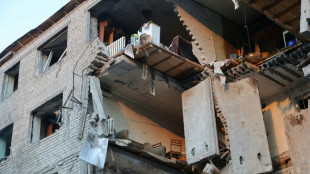
-
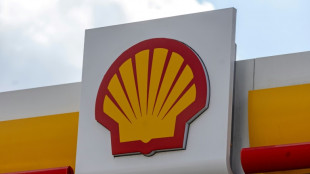 Shell's net profit jumps despite lower oil prices
Shell's net profit jumps despite lower oil prices
-
Pakistani security source says Afghanistan talks 'likely' to resume
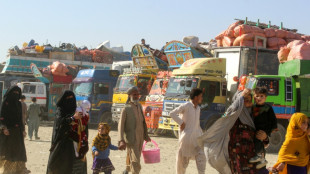
-
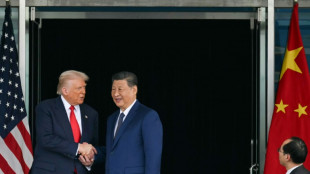 Fentanyl, beans and Ukraine: takeaways from Trump-Xi's 'great meeting'
Fentanyl, beans and Ukraine: takeaways from Trump-Xi's 'great meeting'
-
Branson's Virgin moves closer to launching Eurostar rival
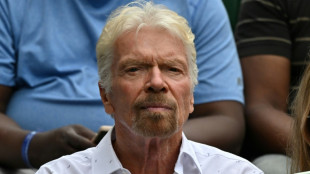
-
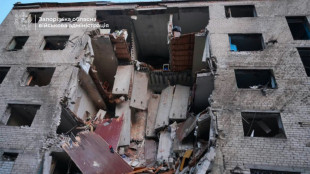 Russia hits Ukraine energy sites, killing one, wounding children
Russia hits Ukraine energy sites, killing one, wounding children
-
Asia markets fluctuate as investors mull Trump-Xi talks

-
 Trump, Xi ease fight on tariffs, rare earths
Trump, Xi ease fight on tariffs, rare earths
-
Volkswagen posts 1-billion-euro loss on tariffs, Porsche woes
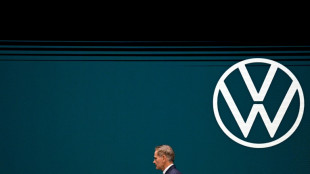
-
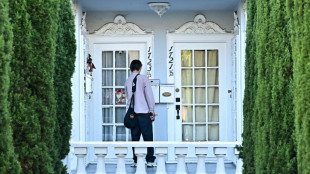 'Fight fire with fire': California mulls skewing electoral map
'Fight fire with fire': California mulls skewing electoral map
-
Fentanyl, beans and Ukraine: Trump hails 'success' in talks with Xi
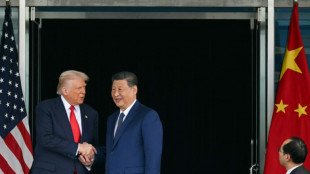
-
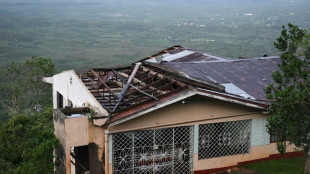 'Nowhere to sleep': Melissa upends life for Jamaicans
'Nowhere to sleep': Melissa upends life for Jamaicans
-
Irish octogenarian enjoys new lease on life making harps
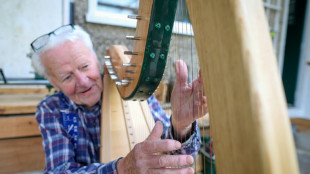
-
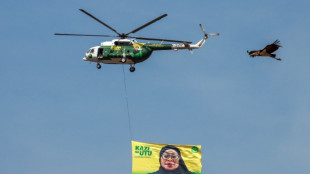 Tanzania blackout after election chaos, deaths feared
Tanzania blackout after election chaos, deaths feared
-
G7 meets on countering China's critical mineral dominance

-
 Trump hails tariff, rare earth deal with Xi
Trump hails tariff, rare earth deal with Xi
-
Court rules against K-pop group NewJeans in label dispute


'A question of time': experts fear Balkans measles outbreak
Despite vaccinating her first child, Vanja drew a line when it came time to inoculate her second and decided he would not be receiving the measles shot.
The 44-year-old psychologist living in Montenegro's capital Podgorica gave a host of reasons why she changed her mind, all after binging on a deluge of information shared in an online group she belongs to.
"I don't trust the vaccination system. We lack information and education," Vanja told AFP, asking that her surname be withheld.
"I feel great responsibility and it wasn't a simple and easy decision to make."
Vanja's position is increasingly common in Montenegro which has the lowest measles vaccine uptake globally with just 23.8 percent of infants inoculated in 2020 with the first of two shots, according to World Health Organization data.
The dramatic decline in inoculation rates has public health experts bracing for an imminent measles outbreak in Montenegro and its nearby Balkan neighbours where vaccination uptake has also plummeted, largely due to a rise in misinformation, especially during the Covid-19 pandemic.
"The risk of a measles outbreak is high," Dragan Jankovic, an immunisation official with the WHO, told AFP.
"Importation of the measles virus is only a question of time... as soon as it is imported into a susceptible population, an outbreak will start."
In neighbouring North Macedonia, 63 percent of children were inoculated with the first shot of the combined measles, mumps and rubella (MMR) vaccine, while in Serbia 78 percent have had the jab.
- 'Perfect storm' -
Experts say a uptake of at least 95 percent of the two-dose jab is needed to avoid the spread of measles, a highly contagious airborne disease that can be fatal.
The virus can cause complications that include blindness, brain swelling and pneumonia, and unvaccinated children are at the highest risk of developing serious cases -- including death.
But for decades, there has been an aversion to the MMR shot, rooted in rampant misinformation tied to a widely debunked 1998 study that suggested a link between autism and the vaccine.
The United Nations has repeatedly warned that a "perfect storm" was brewing for new outbreaks of preventable diseases, with the pandemic disrupting routine vaccinations.
And even after the measles killed over 207,000 people worldwide in 2019, vaccination rates still dropped in many parts of the globe.
The first-dose vaccination rate dropped from 86 to 84 percent globally between 2019 and 2020, while only 70 percent received a second dose during the same period, according to WHO data.
In the Balkans, epidemiologists chalk up the growing anti-vax sentiment to several factors, including distrust in the government, a lack of serious enforcement measures, and a deluge of misinformation that overwhelmed social media during the pandemic.
In Montenegro, doctors have called on the government to take the issue more seriously, saying small fines on parents who refuse mandatory vaccine mandates have done little to reverse the country's anti-vax shift.
"The MMR vaccine is currently not a condition for enrolment in schools and kindergartens," Milena Popovic Samardzic, an epidemiologist from Montenegro's Institute of Public Health, told AFP.
Almost one-third of Montenegrins believe a conspiracy theory that alleges doctors and government seek to vaccinate children with shots that cause autism, according to an Ipsos survey published in 2021.
The same report also found that over half of the country's population are convinced that "global elites" created the coronavirus in order to slash the planet's population.
- 'Fed up' -
In Serbia, the vaccine is mandatory for student enrolment but experts say officials often turn a blind eye to the problem until an outbreak forces their hand.
"The state only needs to follow the rules they set out," said Georgios Konstantinidis, the head of Serbia's paediatrics association.
"But nobody does -- neither the parents nor the people in kindergartens who enrol kids through 'connections'."
Serbia was last hit by a measles outbreak in 2017, resulting in 3,800 recorded cases and 12 deaths, including two children.
In wake of the outbreak, state prosecutors launched proceedings against 43 prominent anti-vaxers for "causing panic", but none were convicted, according to Vladimir Cimerman, a Belgrade doctor who helped bring a lawsuit.
Doctors in Serbia are increasingly frustrated that warnings go ignored.
"We lack social responsibility. I'm fed up with everything," said Konstantinidis.
"Basic humanity has vanished from this society, and the whole world for that matter."
O.Bulka--BTB



